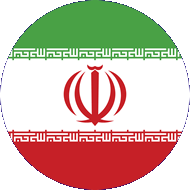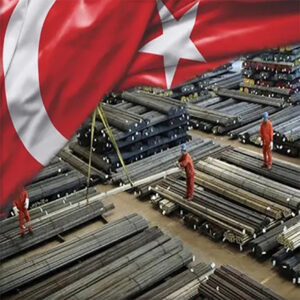The European Bank for Reconstruction and Development (EBRD) aims to support an increase in the competitiveness of Turkish industries, including steel, as they are hit by costs stemming from the EU’s Carbon Border Adjustment Mechanism (CBAM), Kallanish notes.
Turkey’s steel sector, being energy-intensive, is expected to face significant pressures from CBAM, which could result in additional costs for Turkish producers in the coming years, EBRD says.
“The projected costs of the EU’s Border Carbon Adjustment Mechanism (CBAM) for Turkey could range from €138 million in 2027 to €2.5 billion in 2032, and energy-intensive sectors such as iron, steel and cement will be particularly affected by this mechanism,” notes Elisabetta Falcetti, EBRD managing director for Turkey.
“This will likely increase the production costs of private sector companies and pose a risk to their global competitiveness. In this context, we believe that taking proactive measures will increase the competitiveness of Turkish industry in export markets, reduce dependence on costly imported fossil fuels and create new market opportunities,” she adds.
The bank has already made substantial investments in industrial decarbonization and will continue this effort with a dedicated platform for industrial decarbonization in Turkey, it says. “Since 2011, more than half of our investments have been directed to projects with green components. In the last 15 years of our operations in Turkey, we have allocated over €2.5 billion to renewable energy projects,” Falcetti observes. “We are already leading industrial decarbonization efforts in key sectors including cement, steel, aluminum and fertilizer.”
The bank’s dedicated country platform focused solely on industrial decarbonization aims to build consensus among stakeholders, paving the way for coordinated action, she adds.
By encouraging green energy initiatives, waste management, and climate governance, the EBRD believes it can boost the competitiveness of Turkish industries in international markets.
EBRD forecasts moderate growth for the Turkish economy, predicting 2.7% growth in 2024 and 3% growth in 2025. Since 2009, the bank has invested over €20.3 billion in Turkey across 455 projects, including significant contributions to Turkey’s energy transition and industrial decarbonization efforts.




